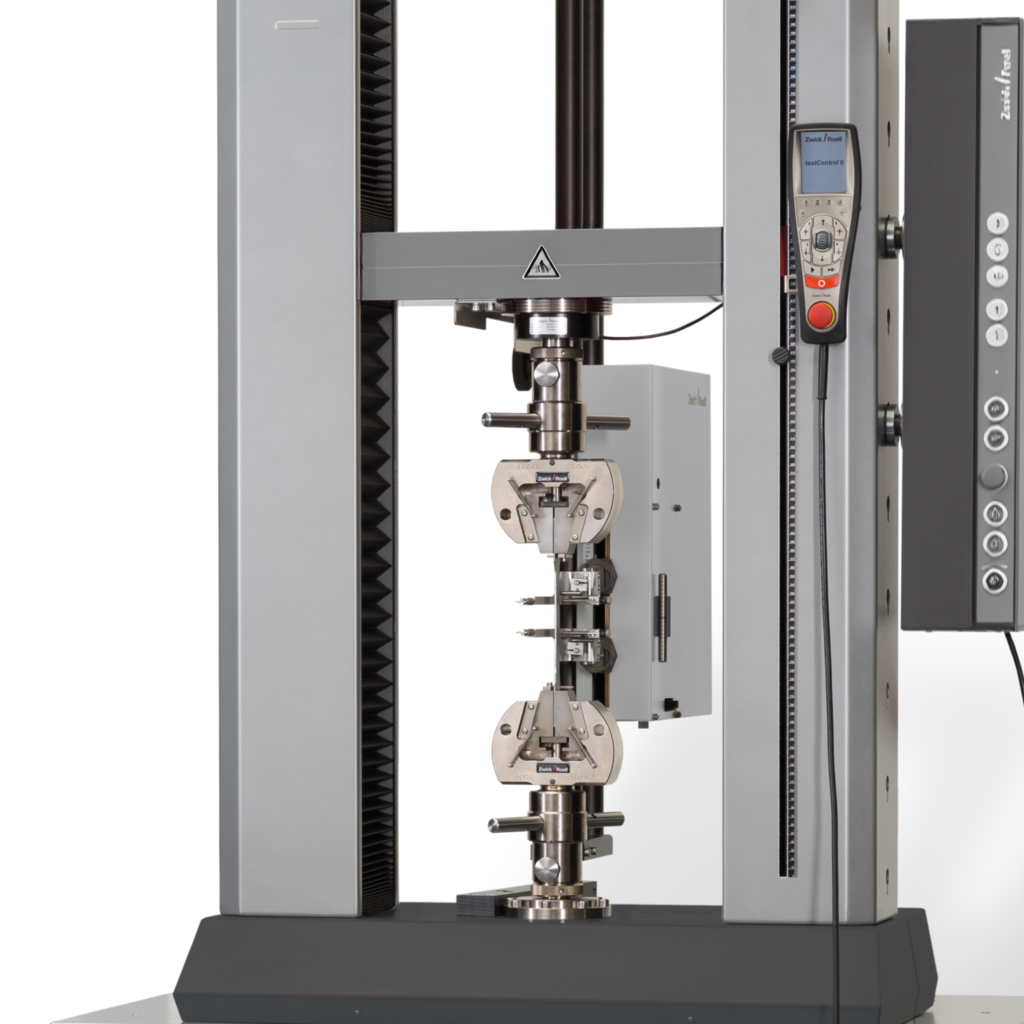Tensile / Elongation Test As Per Standard ASTM D638
The Importance of Tensile and Elongation Testing in Material Science: Insights into ASTM D638
Introduction
- In the realm of material science, understanding the mechanical properties of materials is fundamental to ensuring product reliability and performance. Tensile and elongation testing are among the most critical evaluations performed on materials, especially plastics. These tests help determine how a material will behave under stress, which is essential for predicting its performance in real-world applications. ASTM D638 is the go-to standard for conducting these tests, providing a rigorous framework that ensures accurate and consistent results.

What is ASTM D638?
ASTM D638 is a standard developed by the American Society for Testing and Materials (ASTM) specifically for testing the tensile properties of plastic materials. This standard outlines the procedures for measuring tensile strength, elongation at break, yield strength, and other related properties. It is particularly suited for rigid and semi-rigid plastics, making it a vital tool in industries where plastic performance is critical.
Why Tensile and Elongation Testing Matters
Tensile and elongation tests provide insights into a material’s strength and flexibility. These properties are crucial for engineers and designers who need to ensure that materials will perform as expected under various conditions. Here’s why these tests are so important:
- Predicting Material Behavior: By understanding how a material responds to tensile forces, engineers can predict its behavior under load. This knowledge is crucial for applications where safety and durability are paramount, such as in automotive or aerospace components.
- Ensuring Quality and Consistency: Tensile testing is a key part of quality control in manufacturing. It ensures that materials meet the required specifications and perform consistently across different production batches.
- Facilitating Material Selection: When designing a new product, selecting the right material is critical. Tensile and elongation testing provides the data needed to compare different materials and choose the one that best meets the performance requirements.
The ASTM D638 Testing Process
The ASTM D638 test method is designed to be both comprehensive and precise. Here’s a breakdown of the testing process:
- Sample Preparation: The material is cut into a standardized shape, often resembling a dogbone, to ensure that stress is evenly distributed during the test. The dimensions of the sample are carefully controlled to match the requirements of the ASTM D638 standard.
- Environmental Conditioning: Before testing, samples are conditioned in a controlled environment to ensure that external factors like temperature and humidity do not affect the results. This step is crucial for obtaining accurate, repeatable data.
- Conducting the Test: The sample is placed in a tensile testing machine, which gradually applies a uniaxial force until the sample fails. The machine measures the force applied and the elongation of the sample throughout the test, providing data on tensile strength, elongation at break, and other key properties.
- Analyzing the Results: After the test, the data is analyzed to determine the material’s mechanical properties. These results are compared against the specifications or used to guide material selection and design decisions.
- Applications of ASTM D638 Tensile Testing
ASTM D638 tensile testing is used across a wide range of industries, from automotive to consumer goods, to ensure that materials will perform as required. Some specific applications include:
Product Design and Development: Engineers rely on tensile test data to design products that are strong, durable, and safe. This is especially important in industries like aerospace, where material failure can have catastrophic consequences.
Manufacturing Quality Control: Tensile testing helps manufacturers maintain high standards of quality by ensuring that materials meet their specifications before they are used in production.
Material Research: Researchers use tensile testing to develop new materials and improve existing ones. By understanding how different materials respond to stress, they can innovate and create materials with enhanced properties.

Conclusion
- Tensile and elongation testing, as outlined by ASTM D638, is an essential part of material science. These tests provide critical data on the mechanical properties of plastics, helping engineers, designers, and manufacturers ensure that their products are reliable, safe, and high-performing. At Kiyo R&D Center & Laboratory, we specialize in conducting ASTM D638 tensile tests with the highest levels of precision and accuracy. Whether you are developing a new material or ensuring the quality of your products, our expert team is here to support your testing needs.

